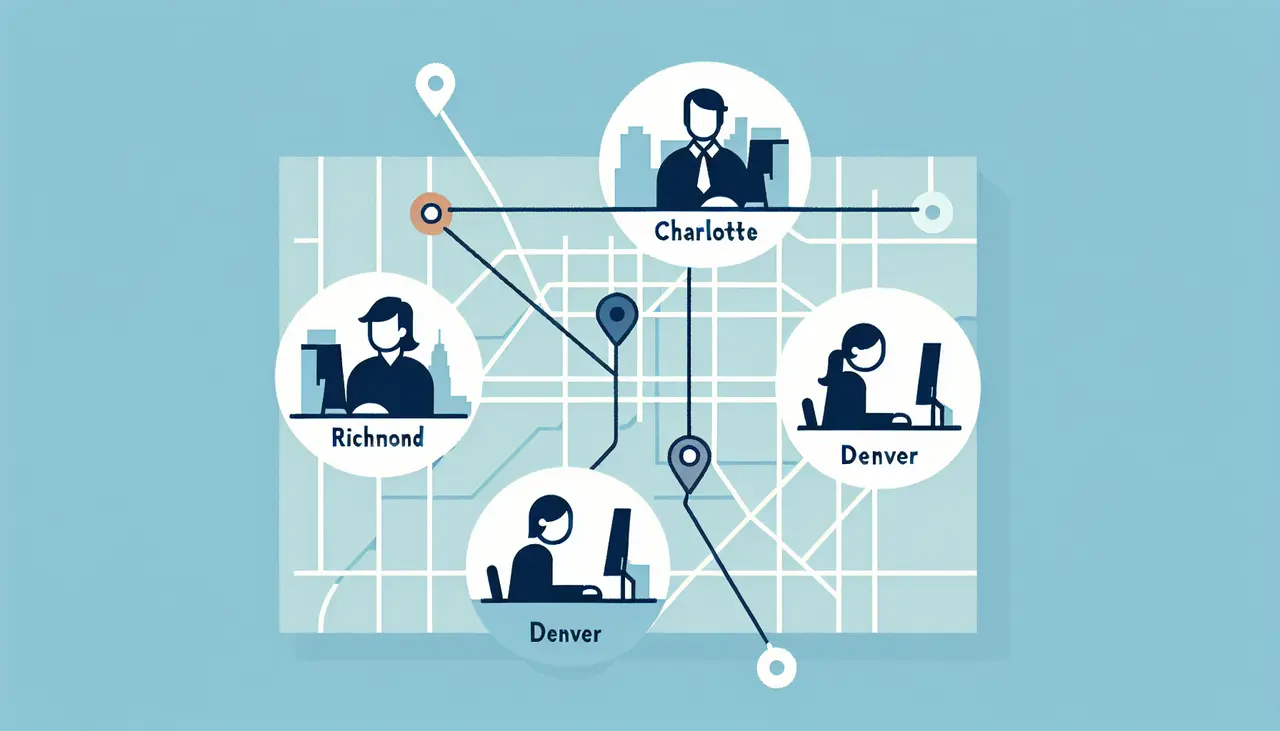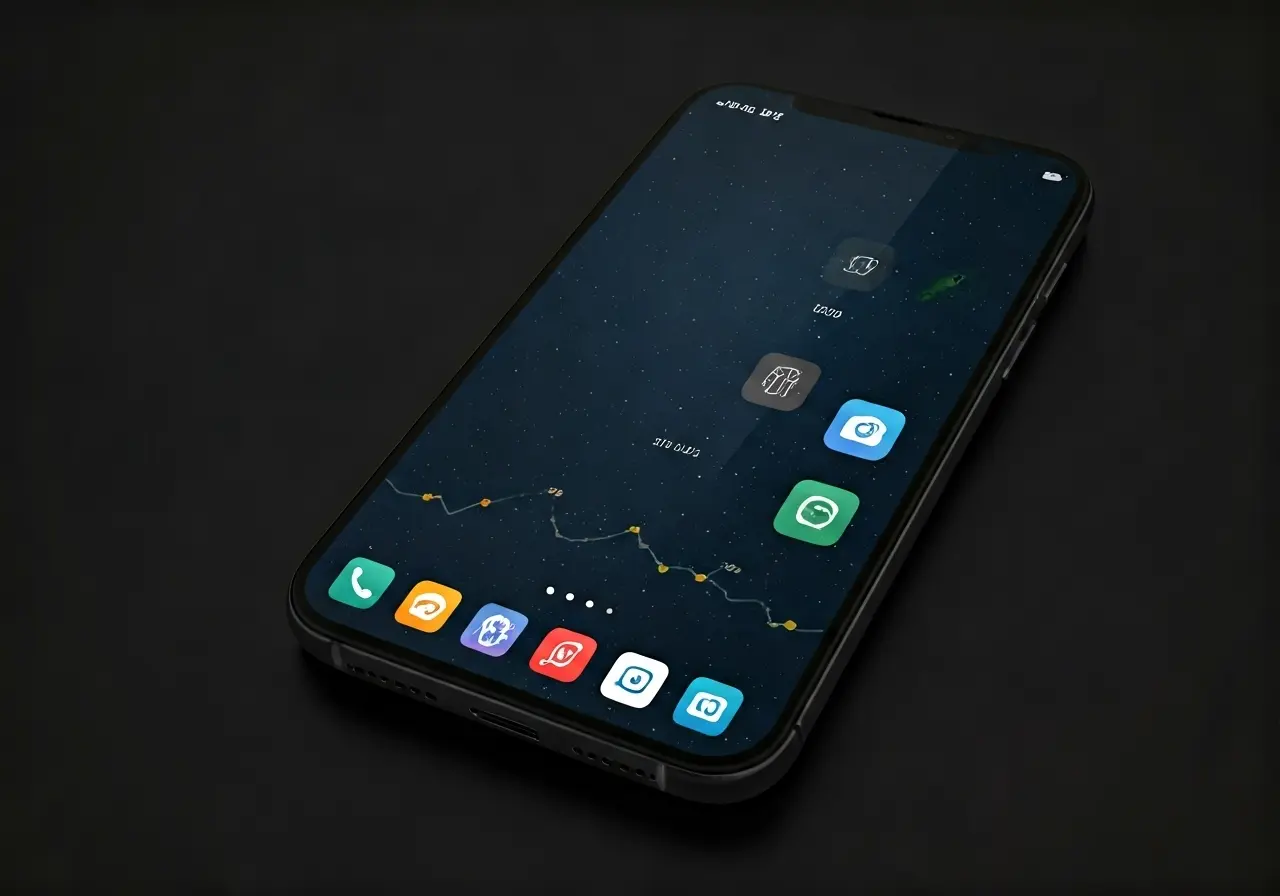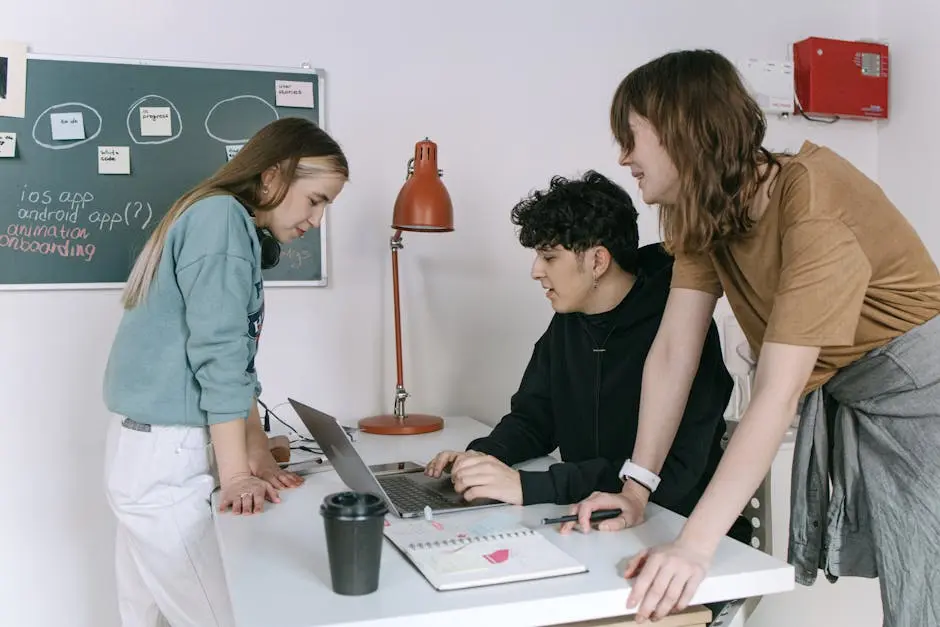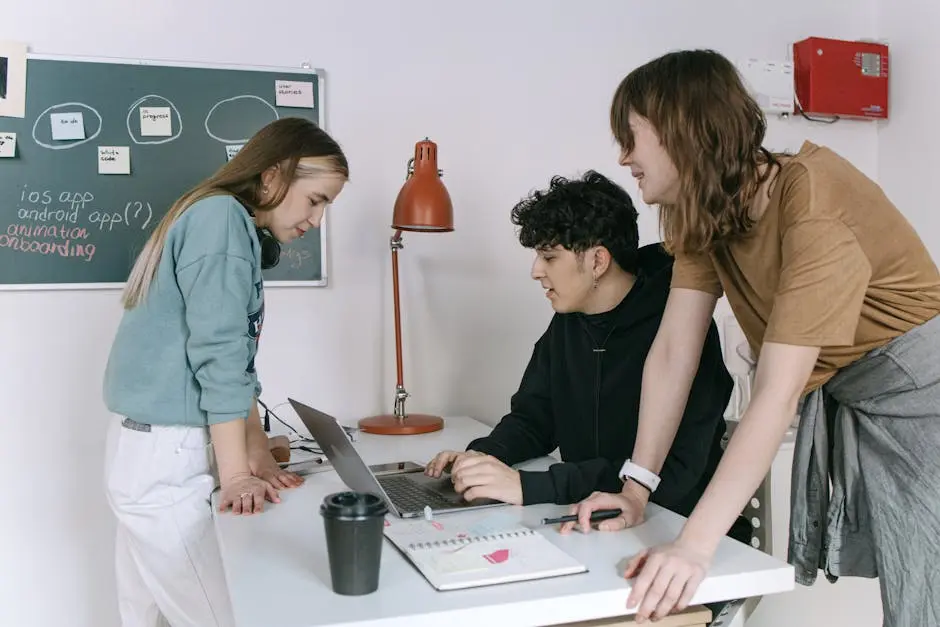Engaging local talent can be a game-changer for businesses in Richmond, Charlotte, and Denver. Employing developers from these communities offers a host of advantages that are often overlooked. In this blog, we’ll explore why hiring local developers is a smart move for your business and how it can help you thrive.

1. Harness Local Knowledge and Expertise
Local developers have a deep understanding of the community, including regional challenges and market trends. This knowledge can give your business a competitive edge by tapping into their insights. For example, developers in these areas are often acutely aware of the technological advancements and industry benchmarks that matter most to local consumers and businesses. This understanding allows them to craft solutions that are not only innovative but also resonate well with users, making your business stand out. Moreover, being intimately connected with the local market means they bring awareness to any shifts in consumer behavior or emerging challenges which could impact your business. Having a developer who knows the local pulse will ensure that your business is always aligned with market needs.
In addition to market trends, local developers are likely to have valuable insights into regional culture and consumer behavior. These factors are crucial when designing apps or systems that intend to deliver a seamless user experience. Understanding cultural nuances can greatly affect user engagement and the effectiveness of your digital presence. Furthermore, their familiarity with local competitors means they can help you strategize better to outperform them. This can be tantamount to gaining a significant competitive edge in your industry. Therefore, the decision to hire local enables you to foster a team that is not just skilled, but also aligned with your market’s unique demands.
2. Foster Strong Collaboration
Geographical proximity enables more effective communication and collaboration. Face-to-face meetings and real-time interactions lead to stronger working relationships and a more cohesive project flow. Such interactions are crucial when deadlines are tight and projects complex, as they allow for immediate feedback and less likelihood of misunderstandings. Furthermore, it’s easier to build trust and rapport through regular in-person meetings, fostering a team environment that thrives on cooperation.
The convenience of having developer teams close by cannot be overstated. Local developers are more accessible and flexible, willing to adjust schedules and accommodate impromptu meetings when necessary. This flexibility considerably benefits project workflows and ensures that everyone remains on the same page. Real-time brainstorming sessions become easier, offering fresh perspectives and solutions that might otherwise be missed in virtual communications. Ultimately, this leads to more agile project management and boosts the potential for groundbreaking ideas.
3. Contribute to the Local Economy
By hiring locally, you’re investing in the community’s economic growth. This not only boosts local businesses but also builds goodwill and supports job creation. When local businesses thrive, they can contribute back to the community in various forms such as sponsoring events, participating in community projects, or offering internships and development programs. This ecosystem of growth ensures sustained economic development, creating a rich environment where talent stays and flourishes locally instead of moving to larger cities.
Investing in local talents means your business becomes a part of the community fabric. This position can earn your business a reputation for being proactive and supportive of the local economy. Moreover, as you grow, this foundation can lead to increased community support and customer loyalty. Additionally, partnering with local educational institutions can enhance your visibility while also providing a steady stream of local talent eager to contribute to your projects. This contributes not only to a strong local economy but also to sustaining a business that resonates and grows with its community.
4. Tailored Solutions Every Time
Local developers can offer personalized service that’s tailored to your specific needs. Their understanding of local trends and preferences ensures that your solutions are effective and relevant. They are more attuned to the subtle shifts in local technology adoption and user preferences, providing you an even greater depth of customization. Whether it’s adjusting UX/UI components to match user behavior or modifying features that meet regional compliance, local developers have you covered. Tailored solutions increase customer satisfaction and loyalty, contributing to sustained business relationships.
5. Quick and Easy Access
Need a quick meeting or face-to-face discussion? With local developers, arranging these is far easier, enabling you to address issues and make decisions swiftly. When unexpected glitches arise, being able to gather your team quickly means issues are resolved before they escalate. This responsiveness is crucial in today’s fast-paced business environment where companies that adapt quickly will maintain a competitive advantage. Additionally, local developers can seamlessly integrate into your work environment, maintaining alignment with company goals and values.
The convenience of accessing local talent extends beyond mere availability; it also allows for seamless integration into your business culture and protocols. Having developers who can be present during critical stages of project development ensures that they are both active participants and stakeholders in the final outcomes. This approach results in higher quality products, quicker turnarounds, and generally enhanced efficiency across the board. Your business can also benefit from their broader network of local professionals, potentially opening doors to further opportunities and innovations.
6. Lowered Onboarding Costs
Choosing local talent often reduces onboarding time and associated costs, thanks to their familiarity with regional market specifics and immediate availability. The process of acclimating to company norms and project requirements is streamlined when cultural and geographical factors align. This results in reduced HR overhead, as the time taken between hiring and full productivity is substantially lessened. Additionally, local developers often come with pre-existing industry certification and training that aligns with regional technical standards, further minimizing initial onboarding expenditures.
7. Local Developers Understand Legislation
Being part of the community means local developers are well-versed in local regulations and standards, ensuring seamless compliance for your project. Understanding legal parameters is key to successful project implementation, from data protection laws to environmental guidelines. Local developers are typically aware of these requirements, ensuring compliance without the need for expensive legal consultations or the risk of penalties. Their insights into legislative trends can also aid in future-proofing your business against potential regulatory changes.
Engage with developers who have established connections within the local industry. This network can bolster your business with additional support and opportunities. Local developers bring these networks to your business, creating opportunities that would otherwise be inaccessible. Whether it’s finding the perfect tool for your project, a strategic partner, or even identifying new business leads, the value of such connections is immeasurable. Leveraging local networks helps in identifying and addressing major obstacles with direct input from industry insiders who share similar goals.
These connections also allow for collaborations on industry events, seminars, or other initiatives that position your company as a thought leader within the community. Engaging with the local developer community not only expands your immediate circle of influence, but also solidifies your reputation as an engaged industry player. Moreover, this network can become a valuable sounding board for new ideas, offering feedback and guidance that can significantly enhance project outcomes.
9. Cultural Compatibility
Shared cultural backgrounds and values can enhance teamwork and reduce miscommunications, leading to a smoother project execution. Aligning on cultural understandings prevents potential pitfalls in communication and project planning that could otherwise arise when working with non-local teams. This shared background fosters a harmonious work atmosphere, where all team members feel understood and valued, resulting in higher motivation, creativity, and productivity. This is especially vital in creative projects where cultural nuances can heavily influence deliverables.
10. Flexible Scheduling
Local developers are more likely to accommodate scheduling needs, providing flexibility and availability that aligns with your team’s workflow. This flexibility can lead to less disruption in your project timeline, as local developers understand peak business periods and local holidays better. Being in the same time zone reduces the lags and potential logistical hurdles often faced with remote international teams. Moreover, this adaptability extends to being open to sudden changes in project priorities, ensuring more nimble and responsive project management.
When issues arise, local developers can promptly address and resolve them, minimizing downtime and keeping projects on track. Immediate problem-solving is critical, especially in tech-heavy sectors where unresolved issues can escalate into larger concerns affecting multiple facets of the business. Having access to a local development team allows businesses to swiftly implement patches and updates, improving product reliability and user satisfaction. Time is of the essence in handling technical hiccups, and with a local team, you secure an agile response without unnecessary delays.
12. Strengthen Your Brand Locally
Being known as a business that supports local talent can enhance your company’s reputation, appealing to local customers and partners alike. This reputation fosters a community of goodwill and trust, setting your company apart as a key player dedicated to the region’s economic growth. Clients and stakeholders appreciate businesses that reinvest in their communities, valuing those that prioritize local talent. This approach doesn’t just endear you to the local populace, but it also leads to increased brand recognition and preference. Supporting local developers reinforces your brand’s commitment to sustainability and community development.









